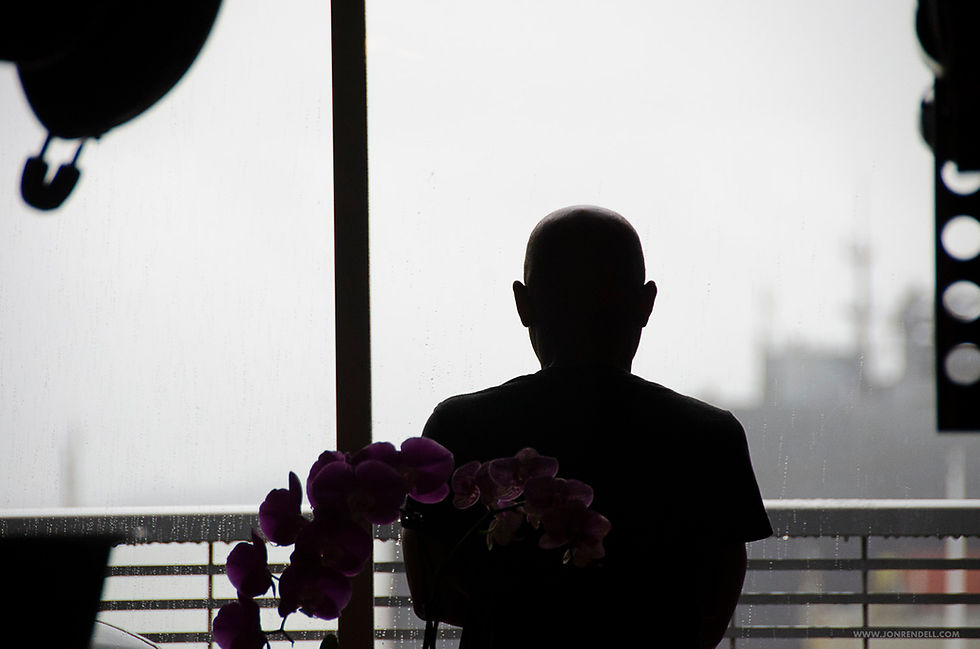Don't Judge a Book by its Cover
- Mar 4, 2020
- 4 min read

Have you ever judged a book by its cover? We have probably all looked at the cover of a book and quickly made a decision whether or not we wanted to read it. Beautiful cover designs are so much more appealing, but it doesn't necessarily mean that the story is equally as good. I have had my share of disappointments. When shopping for a nice bottle of wine, I often get carried away with a beautiful label on a bottle. Sometimes the wine is excellent and other times, well, it was a beautiful bottle and I have forced myself to drink it quickly or pretend to accidentally pour in down the drain. Advertisers have gotten wiser in designing packaged food to make us drool until we open the box.
Over the years I have worked very hard to not judge people, but to accept them as they are, but every now and then there seems to be a hiccup. There are two parts of the brain that operate like a dual processor consisting of a logical conscious system and a non-conscious reflective one. Our logical brain is intentional and within our awareness. It allows us to feel in control, but takes time and effort. The reflective brain releases involuntary mental computations such as making judgements about people's race, sex, skin colour, sexual orientation, religious affiliation and other things. Most of us, but not all of us, have been taught from a very young age in social etiquette to not judge others. It's a process that takes lots of practice and more practice. I often push myself to take a chance to prove my inner voices wrong. Just for a moment let's suppose that we are asked to stare at the sentence below in parenthesis without reading it, just stare at it.
(READ ME)
It's impossible to look at words and not read them — and I have really tried hard not to read the line above. Were you successful?

Our judgments are expectations based on preprogrammed scripts or mindsets. I often love having fun when I am running errands or walking alone. I let my reflective brain respond to situations internally and then I laugh at them and immediately correct it. For example, when entering into a location and everyone appears to be a racist red-neck initially, I can feel my heart beat faster. Without pausing more than a few seconds, I challenge myself to initiate contact. When many people see a tall or big black man, they become frightened and the danger alarm goes on in their body. It's one of the explanations that white women will often refuse to ride or enter an elevator if there is a big or even small black man inside the elevator. Like the cover of a book, you can't tell if the big guy is a teddy bear or a monster. The key is to think about what the other person may be thinking about you. You may be equally as fearful to them for a variety of other reasons. Many of these negative attitudes, implicit or explicit may contribute to phenomena such as discrimination in the workforce, racial profiling, and general limitations to opportunities.
Today I visited a quaint cocktail bar called Lustre in Melbourne. I was very excited to check out a new cool lounge. My partner said order me a Hendricks martini and I was a bit undecided, but ended up ordering an espresso martini for myself. Both drinks were fabulous and matched the ambiance but something nagged me about the bartender. My initial thought was why doesn't he like me? Then 5 seconds later, why don't I like him? Then my emotional intelligence kicked in and I made contact with him and he was the greatest and shared great information about live bands with me. I look forward to returning again. I have learned over time to not allow situations in my head to ruin a potentially good time. It's always amazing to me without even thinking, a part of the brain can evaluate a complete stranger in three little seconds. I refuse to allow those thoughts to remain in my mindset and crush them with my foot.
Although judgment is a natural instinct, it's important to catch yourself before you speak or send a nasty email to do any potential harm. In my practice to become less judgmental and aware, I do the following things:
• Be Mindful. Although judgment is a natural instinct, I practice thinking before speaking. I often pause and try to understand where the person is coming from or what they could be dealing with today. It's important to be aware of my other issues too. Many things could have happened prior to my walking into their space.
• Look for Basic Goodness. This takes practice, as our minds search for negativity in others, but with practice we can discover something good about most people.
• Repeat, Just Like Me. It's good to remember that we are more alike than different. Everyone makes mistakes, just like all of us.
• Look Within. Sometimes we may judge others for something that we do ourselves or have done. For example, yelling at someone while driving, stop and ask yourself if you have ever driven poorly over the years? If you are honest, the answer will be yes.
• Active Listening and Observation. Remember, most people don't wake up with the goal of being a jerk today. Most of us try to do the best we can do with what we have at the time.
My goal in life is to enjoy every single moment of it and share it with those who want the same satisfaction. Remember, judging a person does not define who they are, it defines who we are.







Comments